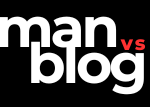When it comes to job interviews, preparation is key. It’s not just about dressing professionally and showing up on time, but also about being able to articulate your skills and experiences in a way that will impress your interviewer. Here are some tips that can help you ace your next job interview.
Research the Company
One of the most important things you can do before a job interview is to research the company. This will give you a better understanding of the company’s mission, values, and goals. It will also help you to tailor your responses to the interview questions and demonstrate your interest in the company. You can research the company by visiting their website, reading news articles about them, and looking at their social media profiles.
Understand the Job Requirements
Before going to a job interview, make sure you understand the job requirements. This will help you to prepare specific examples of how you meet the job requirements and how you can add value to the company. You can find the job requirements by reviewing the job description or by asking the recruiter or hiring manager.
Practice Common Interview Questions
It’s important to practice common interview questions before your job interview. This will help you to be more confident and articulate during the interview. Common interview questions include:
- Tell me about yourself.
- What are your strengths?
- What are your weaknesses?
- Why do you want to work for this company?
- What are your long-term career goals?
Prepare Your Own Questions
It’s also important to prepare your own questions to ask during the job interview. This shows that you are interested in the company and that you have thought about the job. Some good questions to ask include:
- What are the most important skills for success in this role?
- What are the biggest challenges facing the company?
- What is the company culture like?
Dress Professionally
It’s important to dress professionally for a job interview. This means wearing a suit or professional attire. Make sure your clothes are clean and pressed, your hair is neat, and your shoes are polished.
See our guide on dressing for a job interview.
Arrive Early
Arriving early for a job interview shows that you are punctual and reliable. It also gives you time to get settled and calm your nerves before the interview.
Be Confident
Confidence is key during a job interview. Make sure you speak clearly and confidently, and avoid using filler words such as “um” and “uh.” Remember that the interviewer wants to see that you are confident in your abilities.
Maintain Eye Contact
Maintaining eye contact during a job interview shows that you are engaged and interested in the conversation. It also helps to establish a connection with the interviewer.
Use Positive Body Language
Positive body language can help to convey confidence and enthusiasm during a job interview. Some examples of positive body language include:
- Smiling
- Sitting up straight
- Nodding
- Using hand gestures to emphasize points
Showcase Your Skills and Accomplishments
During a job interview, it’s important to showcase your skills and accomplishments. Be prepared to provide specific examples of how you have used your skills to achieve success in your previous roles.

Be Honest
It’s important to be honest during a job interview. If you don’t know the answer to a question, it’s okay to say so. Trying to fake your way through a question can backfire and make you appear untrustworthy. It’s better to admit when you don’t know something and offer to find out or learn more.
Follow-Up After the Interview
Next, following up after a job interview can help to keep you top of mind for the hiring manager. It also shows that you are interested in the job and the company. Send a thank-you note or email within 24 hours of the interview, thanking the interviewer for their time and reiterating your interest in the position.
Handle Rejection Gracefully
Not every job interview will result in a job offer. If you are not selected for the position, it’s important to handle rejection gracefully. Thank the hiring manager for their time and ask for feedback on how you can improve your interview skills.
Learn from Your Mistakes
If you don’t get the job, don’t beat yourself up about it. Use the experience as a learning opportunity. Think about what you did well and what you could improve upon for the next interview.
Conclusion
Acing a job interview takes preparation, confidence, and honesty. By researching the company, understanding the job requirements, practicing common interview questions, and preparing your own questions, you can show the hiring manager that you are the best candidate for the job. Remember to dress professionally, arrive early, maintain eye contact, use positive body language, and showcase your skills and accomplishments. Even if you don’t get the job, handle rejection gracefully and learn from your mistakes.
FAQs
How do I prepare for a job interview?
Research the company, understand the job requirements, practice common interview questions, prepare your own questions, and dress professionally.
How do I handle a tough interview question?
Be honest and take a moment to gather your thoughts before answering.
Should I follow up after a job interview?
Yes, it’s a good idea to send a thank-you note or email within 24 hours of the interview.
How do I handle rejection after a job interview?
Thank the hiring manager for their time and ask for feedback on how you can improve your interview skills.
What should I do if I don’t get the job?
Use the experience as a learning opportunity and think about what you can improve upon for the next interview.




























